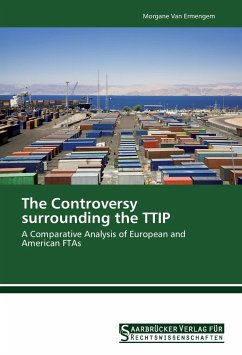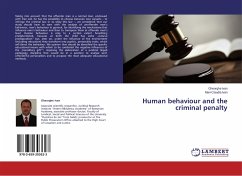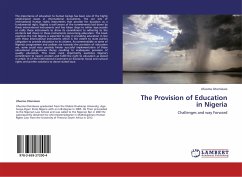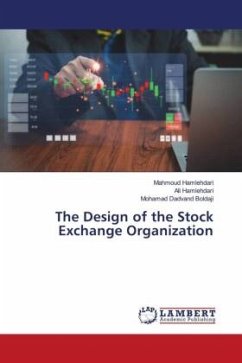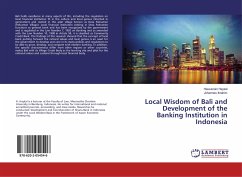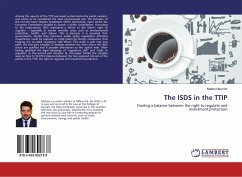
The ISDS in the TTIP
Finding a balance between the right to regulate and investment protection
Versandkostenfrei!
Versandfertig in 6-10 Tagen
27,99 €
inkl. MwSt.

PAYBACK Punkte
14 °P sammeln!
Among the aspects of the TTIP perceived as detrimental by public opinion, one seems to be considered the most controversial one: the inclusion of the Investor-State Dispute Settlement (ISDS) mechanism, upon which the European Commission decided to launch a public consultation. According to the respondents, ISDS represents a threat to the State's right to regulate - especially in certain sensitive areas such as environmental protection, health, and labour. This is because it is assumed that governments, should they introduce public policy regulations affecting investments, could be exposed to c...
Among the aspects of the TTIP perceived as detrimental by public opinion, one seems to be considered the most controversial one: the inclusion of the Investor-State Dispute Settlement (ISDS) mechanism, upon which the European Commission decided to launch a public consultation. According to the respondents, ISDS represents a threat to the State's right to regulate - especially in certain sensitive areas such as environmental protection, health, and labour. This is because it is assumed that governments, should they introduce public policy regulations affecting investments, could be exposed to costly claims by foreign companies, thus trigging the so-called regulatory chill effect. This study is split into two parts: the first part (chapter 2) analyses whether the fears about the ISDS clause are justified and if possible alternatives to this option exist. After having specified the legal meanings of "regulatory chill" and "right to regulate", in the second part (chapter 3), this paper tackles the complex issue on how to find the balance between the two opposed interest of the parties in the TTIP: the right to regulate and investment protection.



